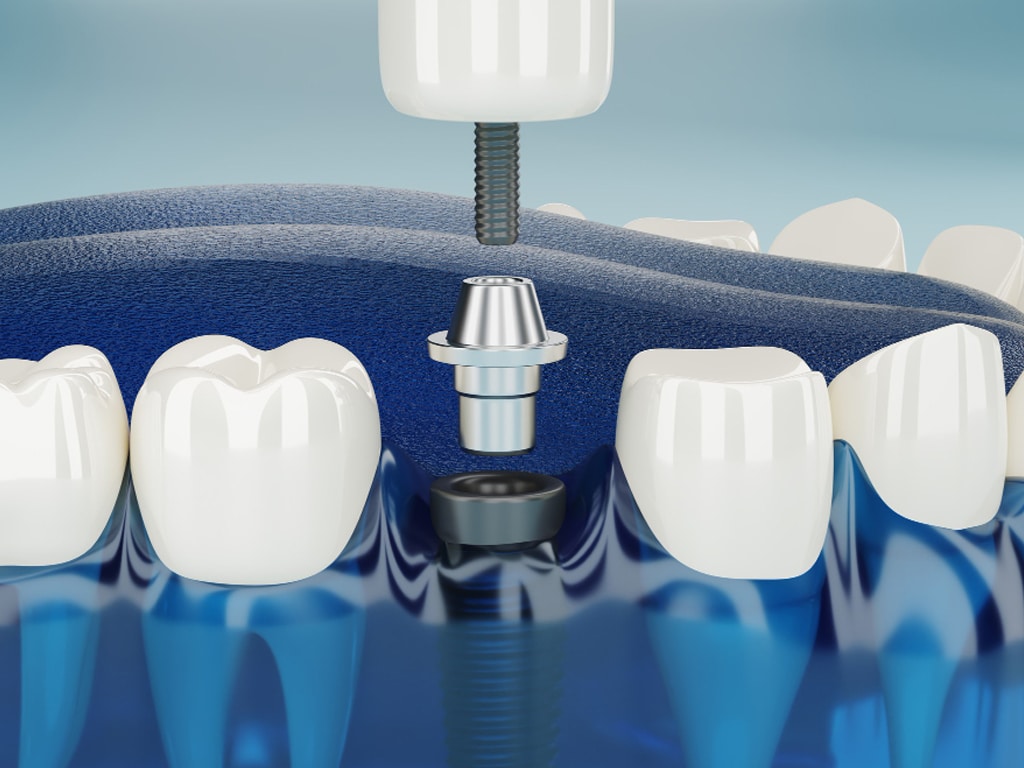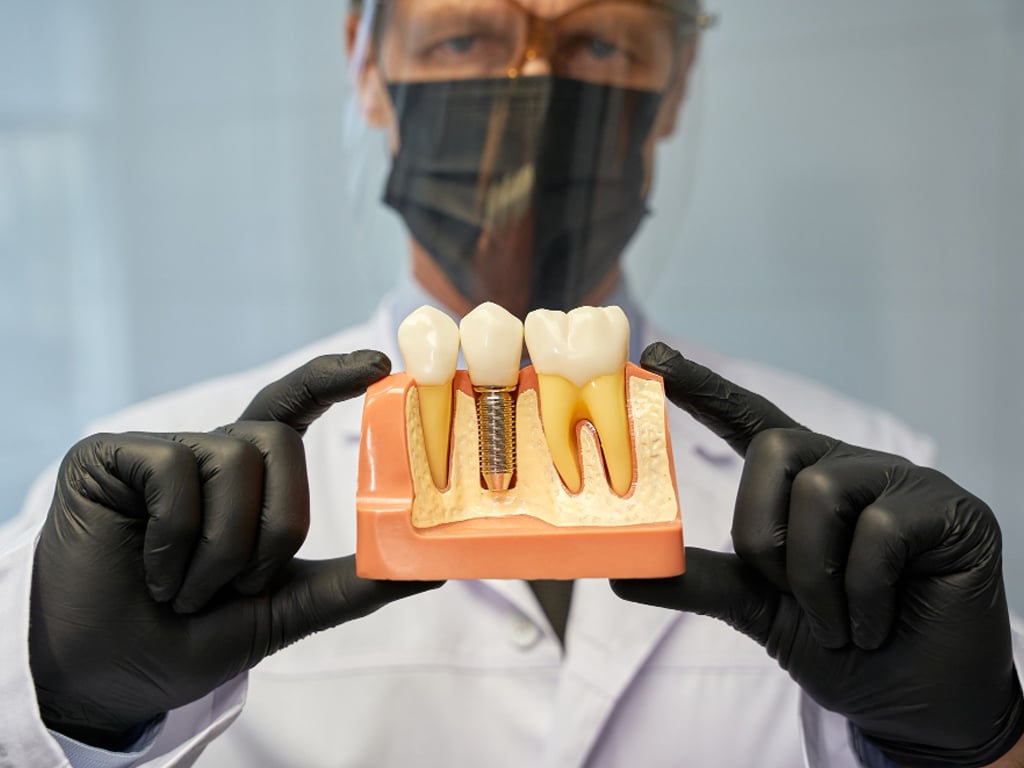Introduction
Losing a tooth or multiple teeth can be a distressing experience, not only because it affects your ability to eat and speak but also because it impacts your smile and self-confidence. Fortunately, modern dentistry offers a reliable and permanent solution for missing teeth: dental implants. In Ottawa, this advanced dental procedure has become increasingly popular, providing patients with a durable, natural-looking, and functional replacement for missing teeth. Dental implants are more than just a cosmetic fix; they restore the functionality of your mouth and prevent further oral health issues that can arise from untreated tooth loss.
This article will explore ten key aspects of dental implants in Ottawa, offering suggestions and insights into why they are an excellent choice for those dealing with tooth loss. By the end of this article, you’ll have a comprehensive understanding of dental implants and why they are considered the gold standard in tooth replacement.
1. Understanding What Dental Implants Are
Dental implants are artificial tooth roots, typically made of titanium, that are surgically placed into the jawbone to support a replacement tooth or bridge. They provide a strong foundation for fixed or removable replacement teeth that are designed to match your natural teeth.
- Implant Composition: Most dental implants are made from titanium because of its biocompatibility, meaning the body accepts it without adverse reactions.
- Suggestion: If you have metal allergies, discuss with your dentist the possibility of using zirconia implants as an alternative.
- Osseointegration Process: After the implant is placed in the jawbone, a process called osseointegration occurs, where the implant fuses with the bone.
- Suggestion: Proper oral hygiene is crucial during this period to ensure successful osseointegration.
- Implant Types: There are various types of dental implants, including endosteal (in the bone) and subperiosteal (on the bone).
- Suggestion: Your dentist will help determine the best type of implant based on your specific needs and bone structure.
2. The Benefits of Dental Implants
Dental implants offer numerous benefits over other tooth replacement options like dentures or bridges. These advantages make them a preferred choice for both dentists and patients.
- Longevity and Durability: Unlike other options, dental implants can last a lifetime with proper care.
- Suggestion: Maintain regular dental check-ups and good oral hygiene to maximize the lifespan of your implants.
- Improved Oral Health: Implants help maintain the structure of your jawbone and prevent bone loss, a common issue with missing teeth.
- Suggestion: Consider implants early after tooth loss to prevent significant bone deterioration.
- Natural Look and Feel: Implants mimic the appearance and function of natural teeth, providing a seamless and comfortable solution.
- Suggestion: Work with your dentist to customize the implant crown to match your surrounding teeth for a more natural appearance.
3. The Procedure: What to Expect
The process of getting dental implants involves multiple steps, which are typically spread over several months. Understanding the procedure can help ease any anxieties and prepare you for what to expect.
- Initial Consultation: The first step involves a thorough examination, including X-rays and possibly 3D imaging, to assess the condition of your jawbone and plan the implant placement.
- Suggestion: Be honest with your dentist about your medical history and any medications you are taking to ensure a safe procedure.
- Surgical Placement: The implant is surgically placed into the jawbone under local anesthesia or sedation, depending on your preference and the complexity of the case.
- Suggestion: Arrange for someone to accompany you to the appointment if sedation is used, as you may feel groggy afterward.
- Healing and Osseointegration: After surgery, it typically takes a few months for the implant to fully integrate with the bone.
- Suggestion: Follow your dentist’s aftercare instructions carefully to promote healing and avoid complications.
4. Who Is a Good Candidate for Dental Implants?
Not everyone is an ideal candidate for dental implants. Certain health conditions and lifestyle factors can affect the success of the procedure.
- Sufficient Bone Density: Adequate jawbone density is crucial for supporting the implant.
- Suggestion: If your bone density is insufficient, you may require a bone graft before receiving an implant.
- Good Oral Hygiene: Candidates must commit to maintaining excellent oral hygiene to prevent infections around the implant site.
- Suggestion: Consider a consultation with a dental hygienist to establish a robust oral care routine before your implant surgery.
- Overall Health: Conditions like uncontrolled diabetes or heavy smoking can impede the healing process and may disqualify some individuals from getting implants.
- Suggestion: If you have a health condition, discuss it with your dentist, as they might suggest ways to manage it before implant placement.
5. The Cost of Dental Implants in Ottawa
Dental implants are an investment in your oral health, but they can be costly. However, understanding the factors that influence the cost can help you plan accordingly.
- Cost Breakdown: The cost typically includes the implant, abutment, and crown, along with surgical fees and any additional procedures like bone grafting.
- Suggestion: Ask your dental clinic for a detailed quote that breaks down all the associated costs, including potential additional treatments.
- Insurance Coverage: Many dental insurance plans do not fully cover implants, but they may cover certain aspects of the procedure.
- Suggestion: Contact your insurance provider to find out what is covered and consider supplemental insurance if necessary.
- Payment Plans: Some dental clinics offer financing options to make implants more affordable.
- Suggestion: Inquire about payment plans or financing options that can help you manage the cost over time.
6. Preparing for the Procedure
Proper preparation is key to ensuring a smooth and successful implant procedure. This involves both physical and mental preparation.
- Pre-Surgical Assessment: Before surgery, your dentist may require you to undergo certain tests or evaluations to ensure you’re ready for the procedure.
- Suggestion: Complete any recommended blood tests or medical evaluations promptly to avoid delays in treatment.
- Medication Management: Your dentist may advise you to adjust certain medications, such as blood thinners, before the procedure.
- Suggestion: Follow your dentist’s instructions regarding medication adjustments to reduce the risk of complications.
- Mental Preparation: It’s normal to feel anxious before surgery, so take steps to manage your stress.
- Suggestion: Practice relaxation techniques, such as deep breathing or meditation, in the days leading up to your surgery.
7. Aftercare and Recovery
After the implant procedure, proper aftercare is crucial for a successful outcome. The recovery period is when your implant fuses with your bone, so it’s essential to follow your dentist’s instructions closely.
- Post-Operative Care: Expect some swelling and discomfort in the days following the surgery.
- Suggestion: Use ice packs and take prescribed pain medications to manage swelling and pain.
- Dietary Adjustments: Stick to soft foods and avoid anything that could disturb the implant site.
- Suggestion: Prepare a menu of soft, nutritious foods like smoothies, soups, and mashed potatoes to help you through the recovery period.
- Oral Hygiene: Keep the surgical area clean to prevent infection.
- Suggestion: Use a gentle, antiseptic mouthwash as recommended by your dentist and avoid brushing the implant site too vigorously.
8. Potential Risks and Complications
Like any surgical procedure, dental implants come with potential risks and complications, though these are relatively rare when performed by a skilled professional.
- Infection: Infection at the implant site is a risk, particularly if proper aftercare isn’t followed.
- Suggestion: Contact your dentist immediately if you notice signs of infection, such as excessive redness, swelling, or pus.
- Implant Failure: In rare cases, the implant may not integrate with the bone, leading to implant failure.
- Suggestion: Regular follow-up appointments can help detect issues early, improving the chances of a successful implant.
- Nerve Damage: Nerve damage is another rare but possible complication, usually resulting from improper implant placement.
- Suggestion: Ensure your procedure is performed by an experienced oral surgeon to minimize the risk of nerve damage.
9. The Lifespan of Dental Implants
One of the most significant advantages of dental implants is their potential to last a lifetime, but this depends on several factors.
- Quality of Implant Material: High-quality implants, like those made from titanium or zirconia, are more likely to last longer.
- Suggestion: Discuss the quality and brand of the implant materials with your dentist to ensure you’re receiving the best option.
- Oral Hygiene Maintenance: Proper care of your implants is crucial for their longevity.
- Suggestion: Regular brushing, flossing, and dental check-ups will help prevent gum disease and other issues that could compromise the implant.
- Lifestyle Factors: Smoking and poor diet can negatively impact the lifespan of your dental implants.
- Suggestion: Consider lifestyle changes, such as quitting smoking and improving your diet, to support the long-term success of your implants.
10. Choosing the Right Dentist in Ottawa
Selecting the right dentist or oral surgeon is a critical step in ensuring the success of your dental implant procedure.
- Experience and Credentials: Look for a dentist with extensive experience and specialized training in implant dentistry.
- Suggestion: Ask about the dentist’s qualifications, including their training in implantology and the number of successful implants they have placed.
- Patient Reviews: Reading reviews and testimonials from previous patients can provide insight into the quality of care you can expect.
- Suggestion: Look for reviews that specifically mention the dentist’s expertise with implants and the overall patient experience.
- Technology and Facilities: Choose a dental clinic equipped with the latest technology and facilities for implant procedures.
- Suggestion: A clinic that offers 3D imaging and digital planning tools is likely to provide more precise and successful outcomes.
Conclusion:
Dental implants are a remarkable solution for individuals in Ottawa dealing with missing teeth. They offer a permanent, natural-looking, and functional replacement that can restore your smile and confidence. While the process involves several steps and requires an investment of time and money, the benefits far outweigh the challenges. By understanding the procedure, preparing adequately, and choosing the right dentist, you can enjoy the long-term benefits that dental implants offer.
If you’re considering dental implants, it’s essential to consult with a qualified dental professional who can guide you through the process and tailor the treatment to your specific needs.
Ready to restore your smile with dental implants? Contact Findlay Creek Family Dental today to schedule a consultation.
Name: Findlay Creek Family Dental
Address: 4100 Albion Road, Ottawa, ON
Phone: 613-822-1500
Email: info@findlaycreekfamilydental.com
Website: Findlay Creek Family Dental.
“Dental Implants in Ottawa: Your Path to a Lasting, Confident Smile“
FAQ
-
A1: Dental implants are typically made of titanium, a biocompatible metal that integrates well with the jawbone. For those with metal allergies, zirconia implants may be an alternative.





